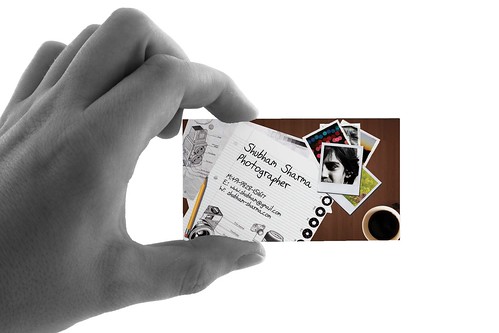I got an interesting question a few days ago from a reader of the social confidence newsletter. He noticed that very frequently, in buses, on the street, in the supermarket, while waiting in line, people look intently at him. So he asked me: “Why do people stare at me?”
It’s not that “Dang! You’re hot!” kind of stare that a very attractive woman may get, it’s more like that “Wow! You’re weird!” kind of stare.
This isn’t by any means the first time someone asks me: “Why do people stare at me?” As a social confidence coach, I get this question a lot. In this article, I’d like to provide a thorough, qualified answer to it, and show you how to amend this situation to boot.
In my experience, there are 3 major reasons why people may gape at you. In more than 95% of cases, one or more of these reasons offer the complete explanation.
1. There Is Something Quite Odd about Your Appearance
First and foremost, your appearance may be markedly bizarre, and this is what gets people’s attention and makes them gawk.
I’m not talking about the way you look physically per se. Being fat, skinny, short, bold, Asian, Indian or whatever rarely gets stares in this multifaceted society. I’m talking about the way you dress and take care of yourself.
It’s common for people who get lots of stares to be utterly careless or clueless regarding clothing, grooming and personal style.
It’s like they never look in the mirror. They go out with unkempt hair and baggy clothes, they choose horrible clothing combinations, and their overall appearance is extremely sloppy. This is what gets noticed and it often makes others gawk.
 Next time before you go out, take a good look at yourself in the mirror. Note your clothes, their fit, your hair, your posture and your overall look. Try to observe yourself as if you’re observing another person that you’re seeing for the first time.
Next time before you go out, take a good look at yourself in the mirror. Note your clothes, their fit, your hair, your posture and your overall look. Try to observe yourself as if you’re observing another person that you’re seeing for the first time.
And notice: is something off about your appearance? Do you look eerie or unappealing in some way? If so, it’s time to start taking better care of the way you dress and present yourself visually.
You may be a very cool person on the inside, but if you dress sloppy, the first impression you create will be the very opposite of that.
2. Anxiety Is Messing Up the Message Your Project
It’s no coincidence that almost every person who perceives that others often stare at them feels nervous in social settings. Some of them have actually being diagnosed with social phobia or even AvPD.
You see, when you’re in a social setting and you feel anxiety, this will screw up your non-verbals, especially your facial expression. You’ll have this frozen, terrified look on your face, your eyes will be very wide open and your face color will likely be very pale.
This gets people’s attention and shocks them. So they’ll have the tendency to stare at you, perhaps even say to others: “Look at this guy/girl! He/she looks like they saw a ghost or something!”
Then you’ll realize others are gawking at you, which will make you self-conscious, which generates even more anxiety, so you look even more terrified, and the whole thing spirals.
In my experience, this is the most common reason why people stare at you. It is fundamentally an anxiety-related issue. And the only real solution is to deal with this root cause: to overcome your anxiety related to social settings.
Fortunately, effective, well-researched methods for overcoming anxiety exist today. Your job is to learn them and apply them.
I don’t want to go into this extensive topic here, but I do encourage you to check out this free presentation I designed, in which I cover this exact topic and I’ll show you the steps to take in order to build rock-solid social confidence. Please make sure you watch it.
3. It’s Largely Just In Your Head
It is also very possible that people in general don’t stare at you that much. No more than they stare at anybody else (yes everybody gets occasional stares), or at least not much more
However, your mind makes it seem that people stare at you all the time, when this actually occurs infrequently. What happens is that, since staring makes you feel uncomfortable, you notice it a lot and you remember it vividly.
You’re very aware of the situations when others gawp at you, but completely unaware of the many situations when they don’t. This makes your mind overgeneralize and create the erroneous impression that people stare at you all the time.
Nevertheless, the reality is far from that.
This is something you can overcome by paying more attention to the situations where others do not gawk at you or they don’t even notice you, bearing them in mind, and then trying to objectively asses how frequently do others truly gawk at you.
You’ll likely find out it’s only in a small number of cases.
That’s it: my answer to the puzzling question: “why do people stare at me?” Take this info, put it into practice and see what happens. I think you’re gonna love the results you’ll achieve. And above all, work on building your social confidence. I will make the biggest difference.
Image courtesy of Chibcha
